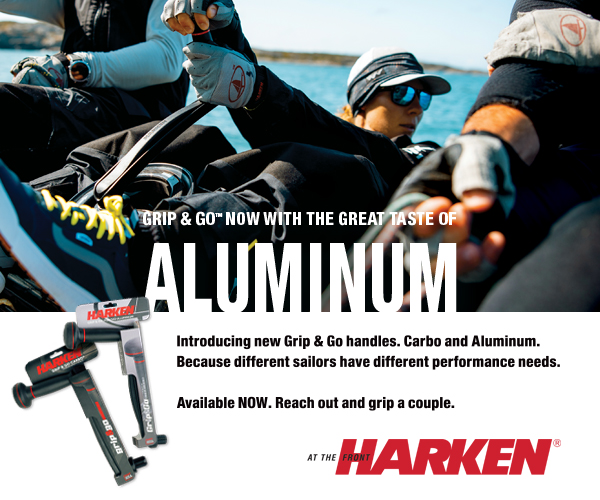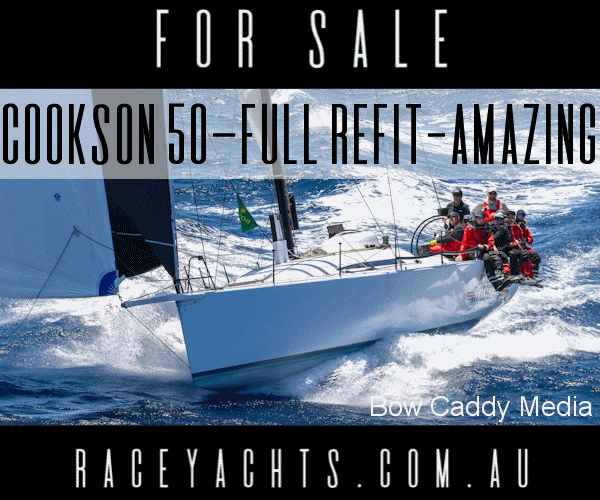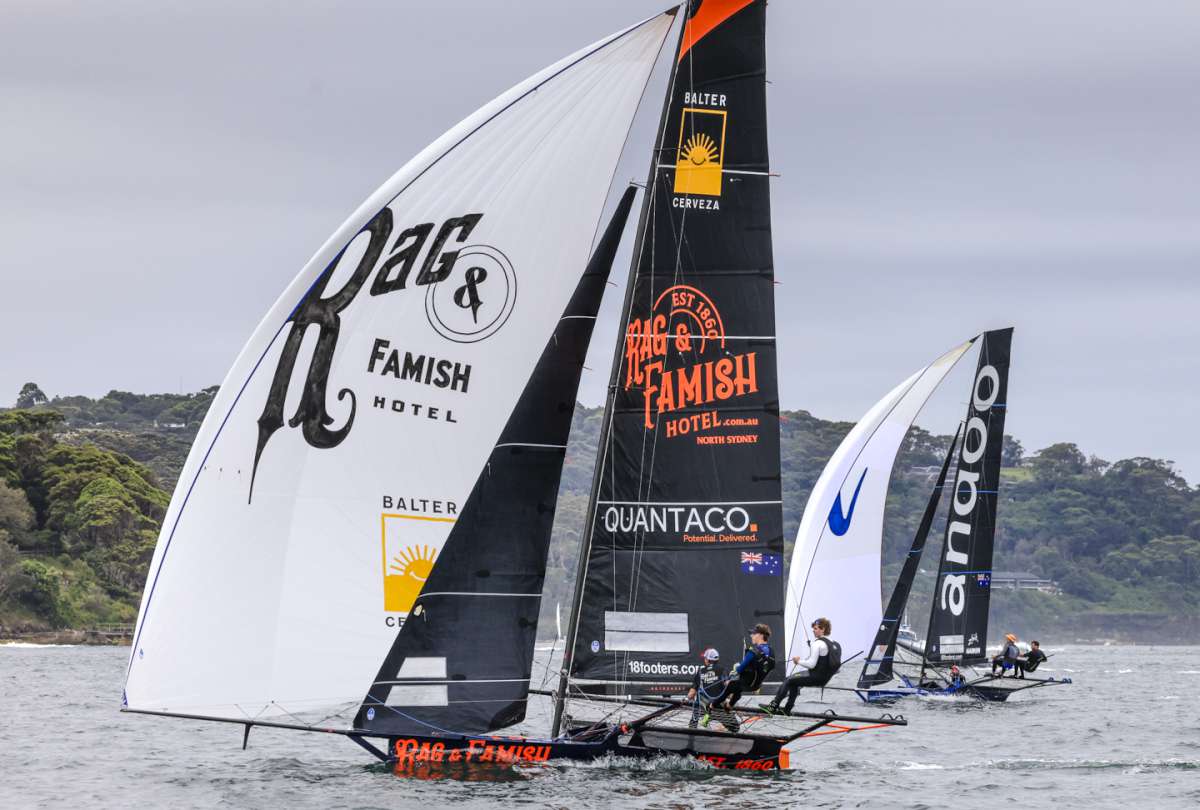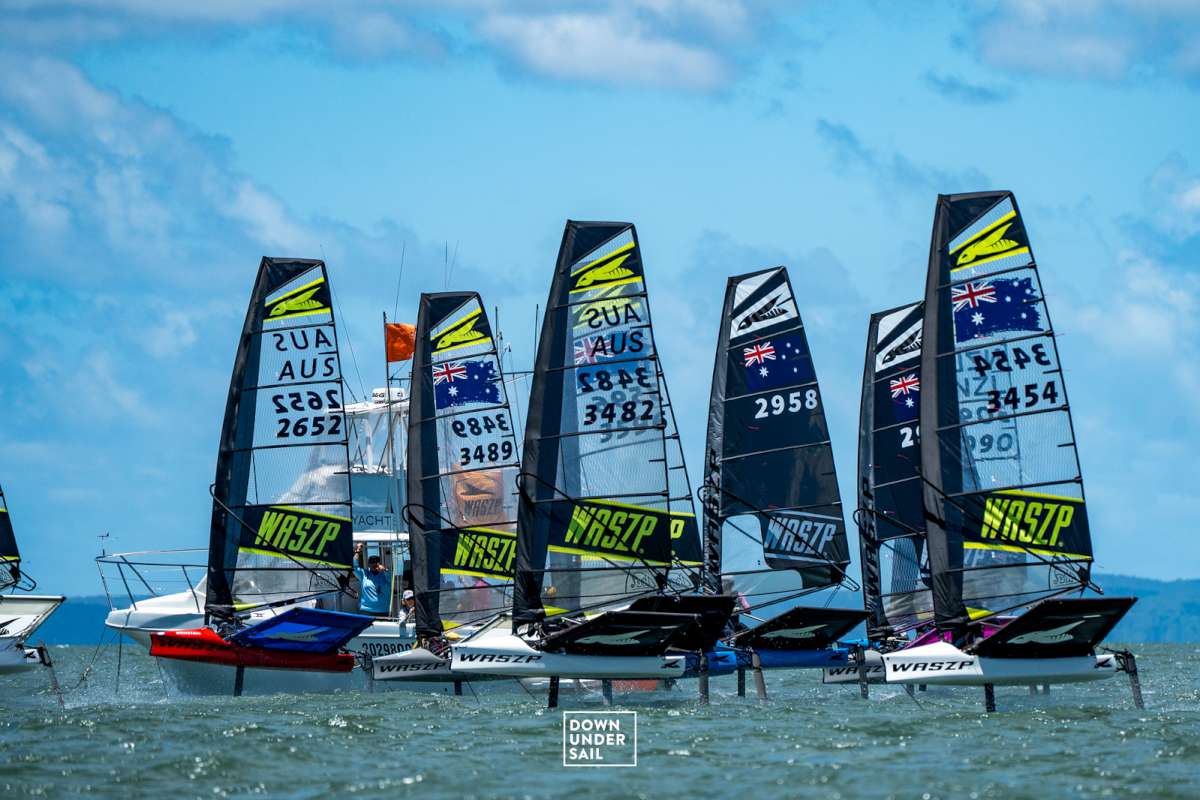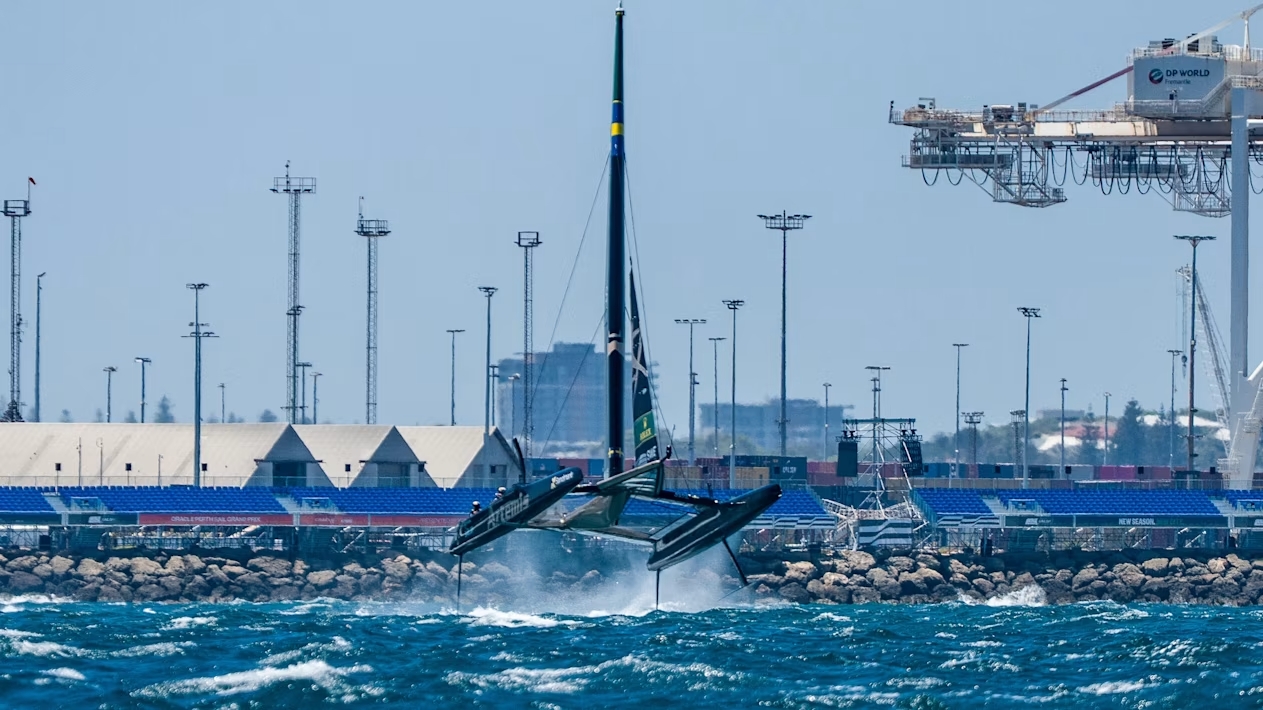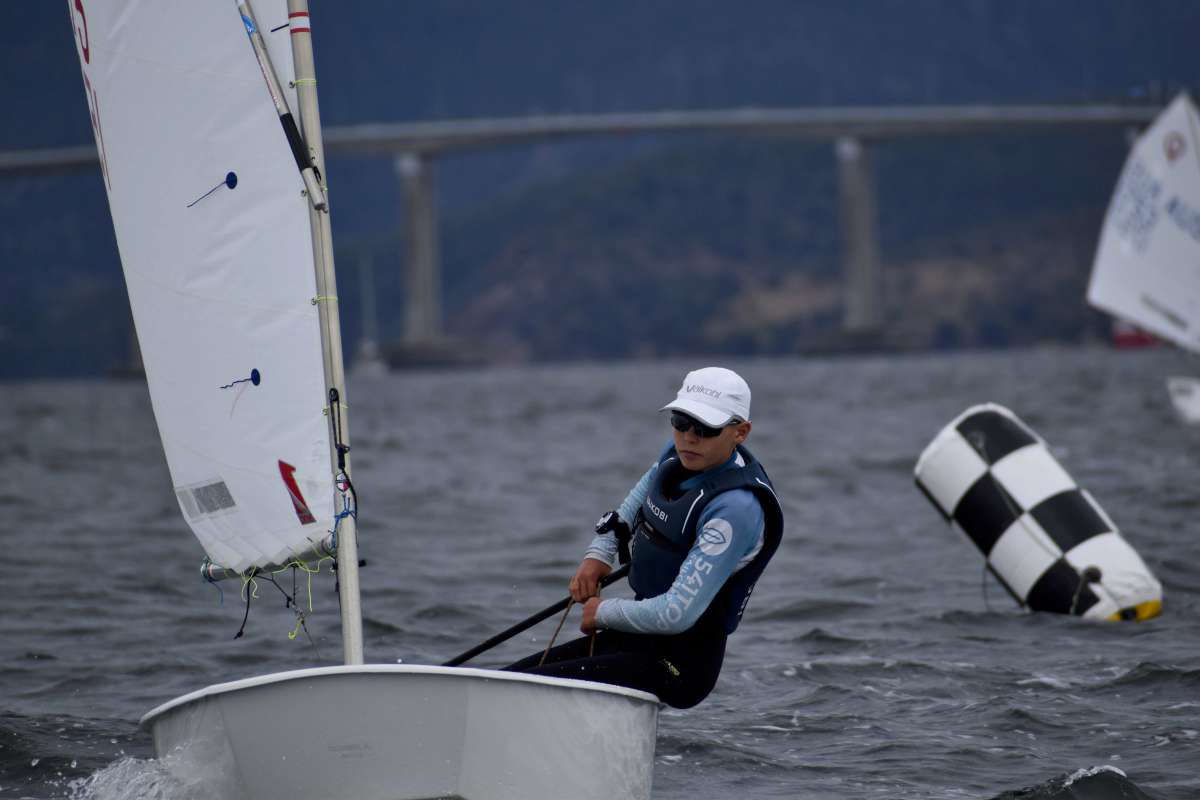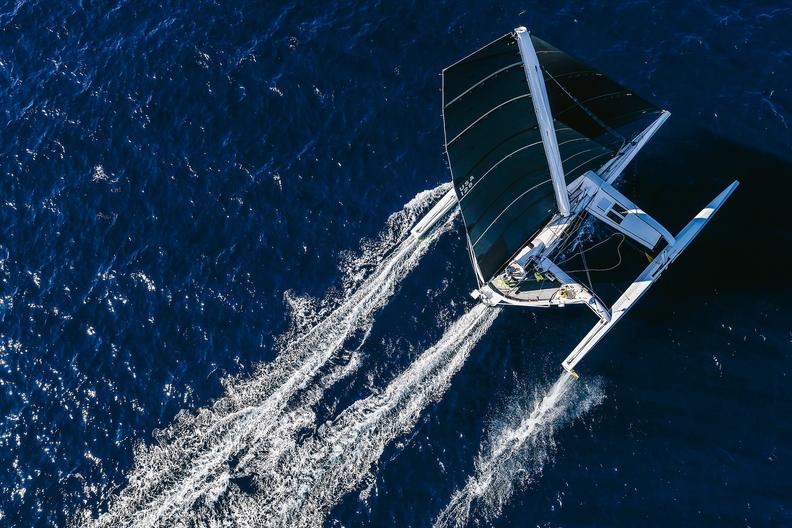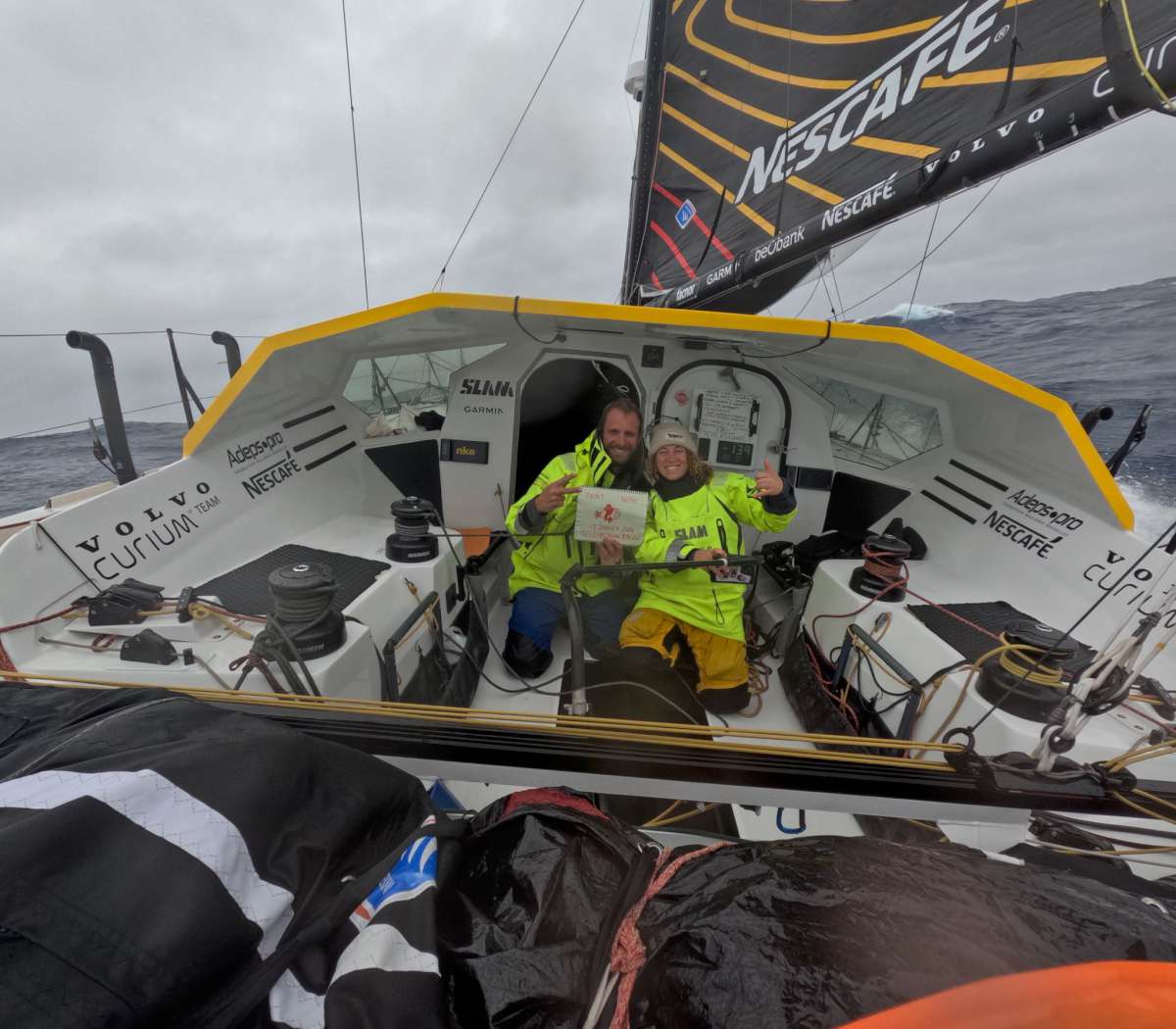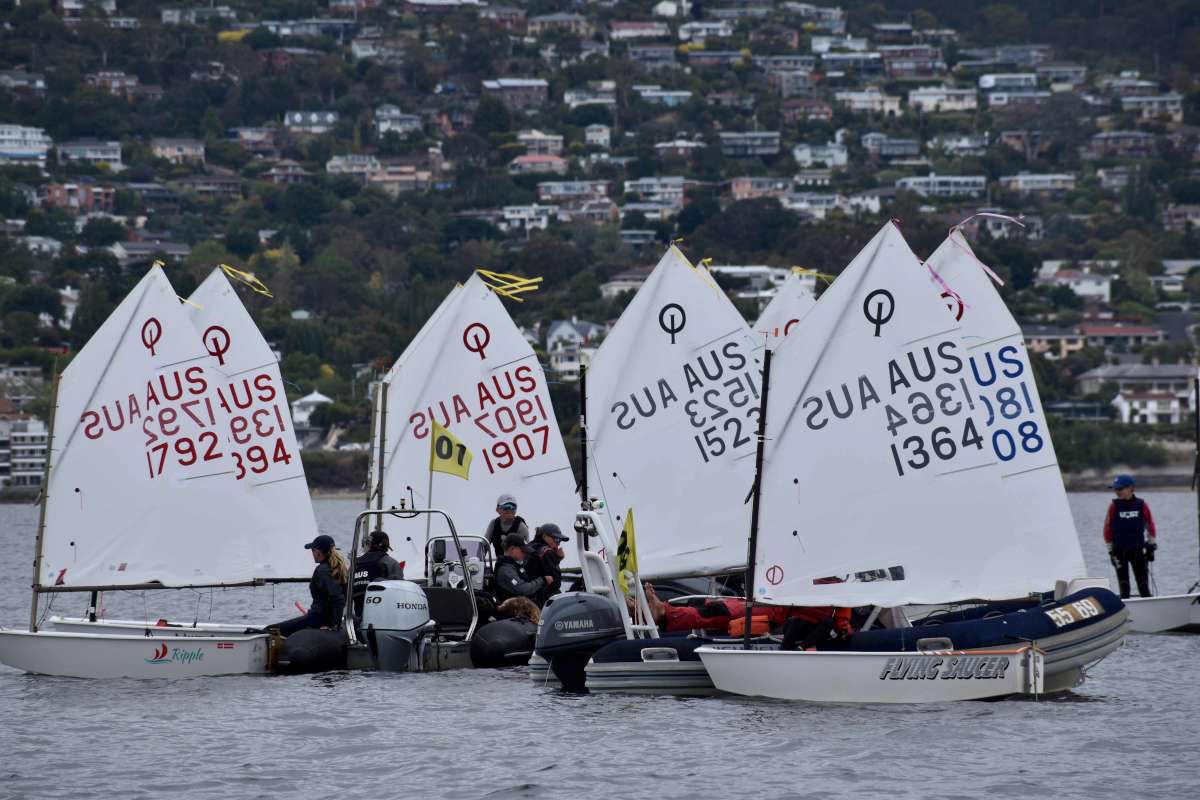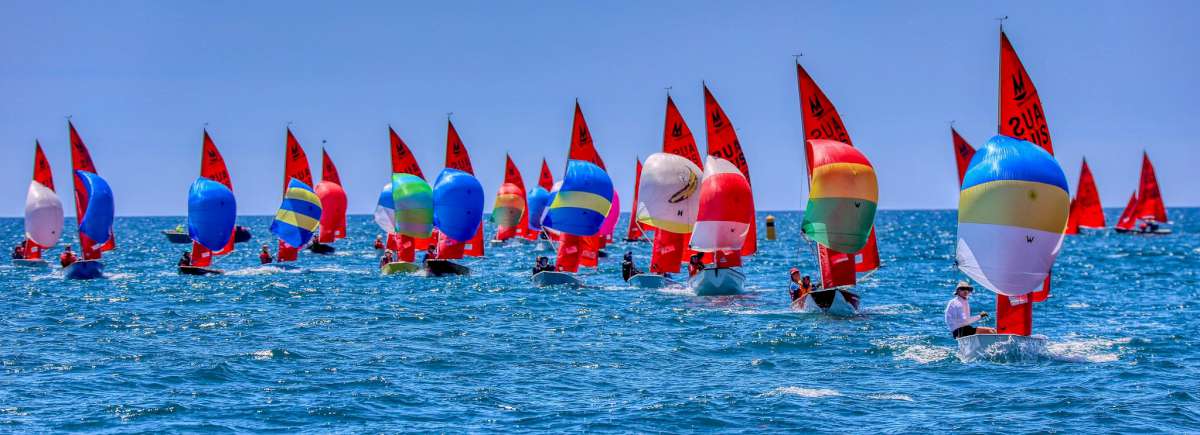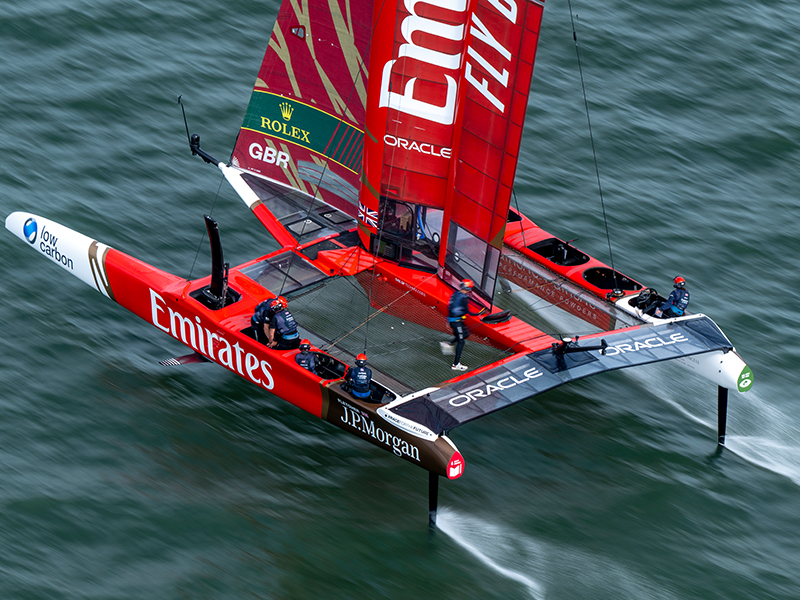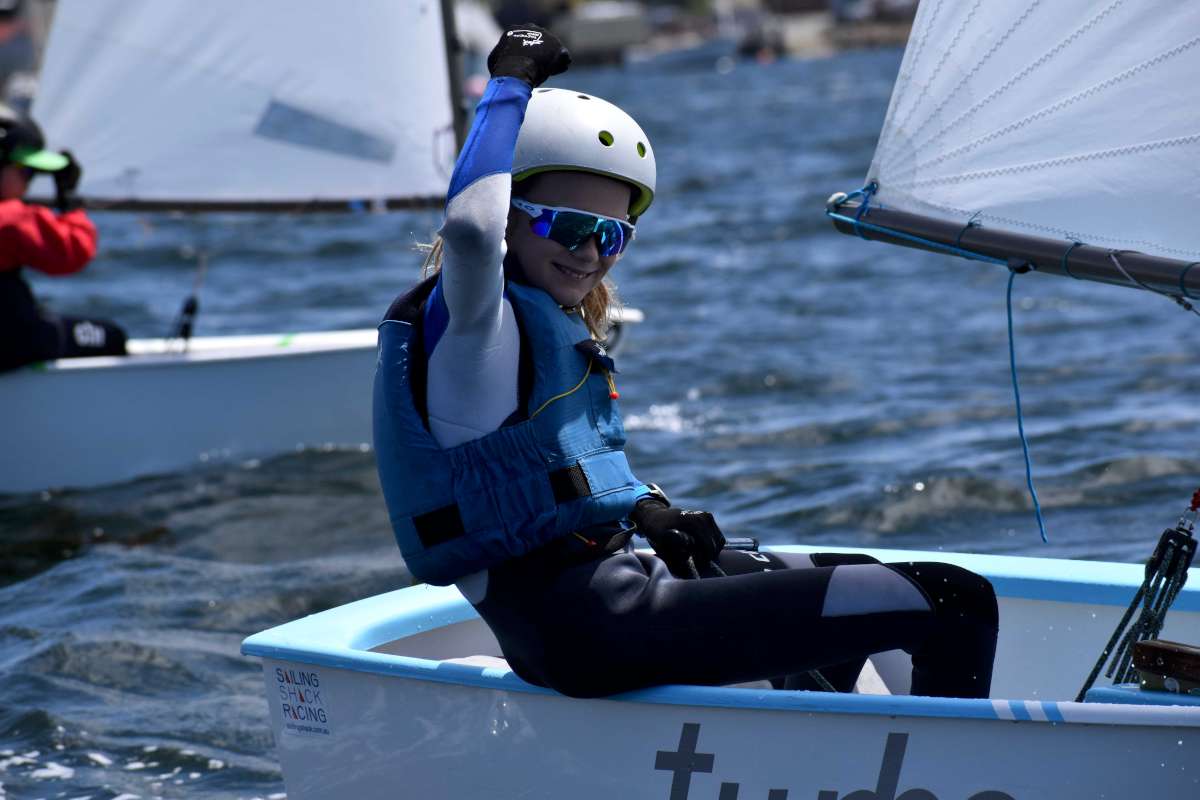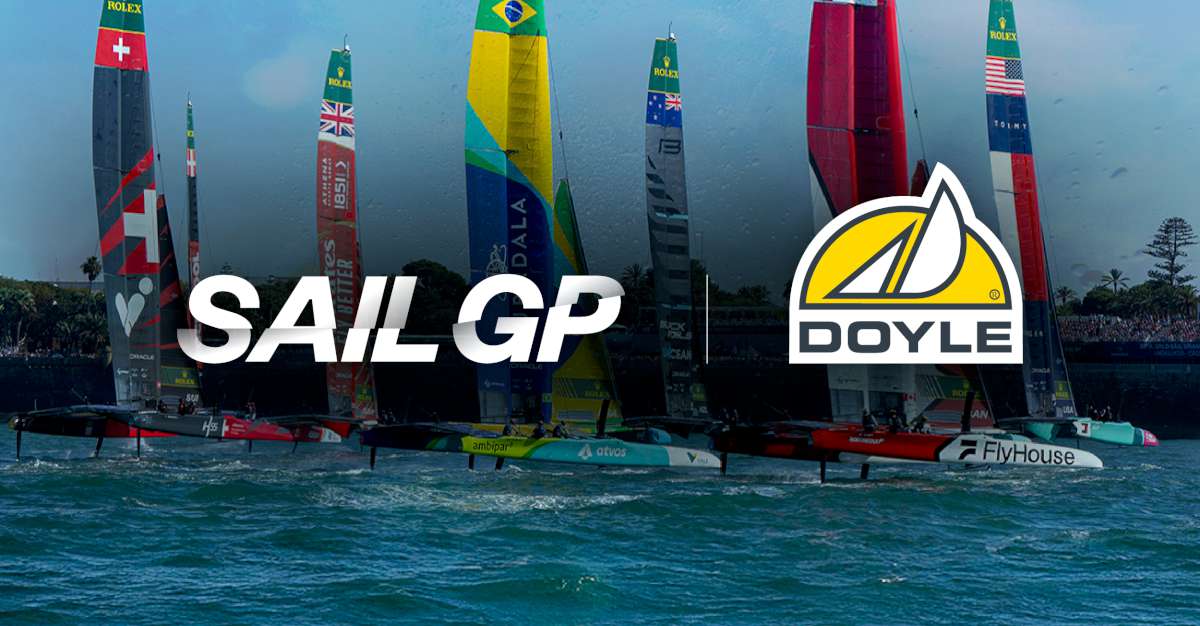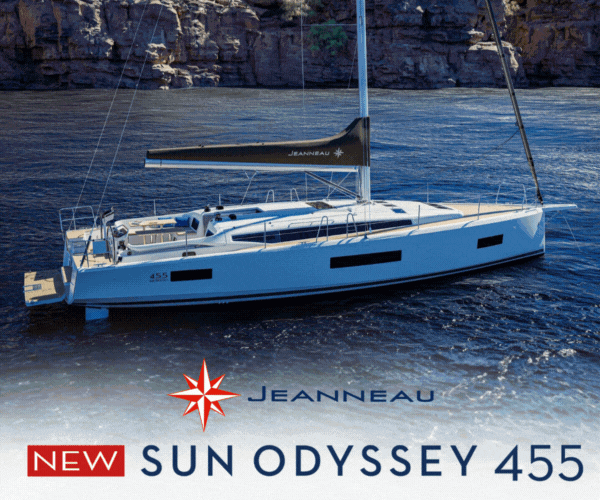Australian sailor Lisa Blair set sail from Albany, Western Australia on Monday February 21, in a second attempt to sail solo, non-stop, around Antarctica in record time aboard her yacht ‘Climate Action Now’.
Blog Day 59 & 60
Latitude 50 22.52S
Longitude 07 41.72E
Barometer 1005
Air Temp 3c
http://LIVE TRACKER
In her latest blog post, Blair describes the fear of her worst knockdown and the fear of what she would find on deck once she had calmed down.
Well today’s blog is going to be a bit of a combo blog, with all the time zone changes I need to leap ahead a little to reset the blog writing times so today is going to be a two for one.
After sailing across the line of meridian in the wee hours of day 59, the conditions remained rough and very cold. I could see outside that the sky was blue, but it was broken up by some of the most vicious squalls I have had to date.
When the squalls would arrive, the winds would jump from 30-35 knots all the way up to 40-47 knots and we would get pummelled with sleet, snow, and hail. It was so cold that the inside of the cabin temperature fell to below 4 degrees Celsius and outside hit -o.2C, the coldest yet.
Because it was so brutal on deck, I hibernated inside the boat, alternating between sitting at the navigation station, and writing emails, or watching a movie, to huddling in my bunk, buried deep in my sleeping bag.
I had all my http://Musto Layers on from my base layers, vest, and mid layers, and still put a hot water bottle down my top. The seas were still large. I believe they were larger now than when the actual storm was blowing, so we were getting regular knock downs and large shoves from the waves.
I estimate that they were coming through at 8-10 meters on the sets. The squalls were hitting roughly every 30 minutes, so while I could have shaken a reef in the lulls, I kept the sail plan small with the 4th reef in the mainsail and the storm jib and just waited it out.
By about 3pm in the afternoon, there had been a large squall that dumped so much snow and sleet, that the decks were completely covered in it.
I was going for my camera to capture it when a wave broke over the back of the decks and washed it all away, but when I looked out through my Perspex dome, I could see that there was still snow caught on my mainsail. I really wanted to capture that, as proof, so I geared up and figured it was about time to look around and see how the boat was handling everything.
I put gloves on this time, (Good girl, says mum) and they were so needed. In a lull between snowstorms, I climbed out on deck and took a few pics and had a look around. So far everything seemed to be going great.
The crack in my boom didn’t appear to have moved much, and we somehow had managed to survive with three complete wind generators – which is a first. I went back below and fixed myself some dinner and heated up the hot water bottle again.
I had made a mix of refried beans, corn and salsa that I was putting in wraps with some cheese and toasting. I still had some of the mix left, so I made a few more of those and returned to my navigation station to relax.
The navigation station is the smallest part of the boat, so it is the safest place to sit in conditions like this. It was dark outside now and I was watching a tv show on my http://Microsoft Surface Book 3 laptop when it happened.
I had had a few extra-large knockdowns throughout the day, where I had needed to reach out and place my hand on the laptop to stop it from flying across the cabin, so I didn’t think much when I felt Climate Action Now getting caught by a wave. We were sailing on a starboard tack, so the port (left) side was the low side, and the starboard (right) side was the high side.
I was sitting on the port side with my back to the wall when I could feel an extra-large wave hit us on the starboard aft quarter and shove, it sent us careering down this mountain of a wave where we were racing along at 20 knots.
I could feel the exact moment it all went wrong. As the wave hit on the starboard corner, it had shoved us to starboard slightly, so the auto pilot was not only surfing this wave at 20 knots, but also trying to correct our course back to port. Flying along as we were, with a wall of white water frothing at our back, we were completely out of control.
I reached out and put a hand over my phone and computer to stop them flying and braced myself on the roof with my other arm.
As we slowed on that wild ride, the bow skewed to port, and our stern was captured by the white water. Suddenly we were no longer surfing. The white water shoved the back of Climate Action Now so hard to starboard that it pushed us through a crash gybe before picking us up and slapping us down on the starboard side hull.
It was like we jack-knifed to starboard in the air with the boom slamming across to the wrong side of the boat before we impacted hard on the bottom of the wave.
That white water was still there, and I was bracing with all my strength now trying to stay in position, as I was all but standing on the hull now. Climate Action Now continued over and as I looked up the port side of the boat, all I could see was anything not tied down going flying from the port side to the starboard side.
We continued to roll and it was like I was watching it in slow motion. Things were slamming into the engine box and would then slide up it before they hit free air and smashed over on to the starboard side.
Any water that was in the bilges was suddenly coating the roof of the cabin and the starboard side. Even my sleeping bag, which had been in my bunk on the port side with the lee cloth up, was leaping free and smashing across the cabin. Then the roar of the white water engulfed us, dragging us over even more and finally we slipped free on the other side, and Climate Action Now righted herself.
In my mind, sheer devastation was all that I could imagine would greet me on deck and I remained frozen…. I was terrified.
That was one of the worst knockdowns I have ever had; easily top three. When we finally started sailing again, I was able to move through the cabin on shaky legs. Crumpled on the floor was my wet weather gear, soaked with bilge water. My life jacket had managed to make its way behind the stove, all the galley locker lids were strewn around the cabin and the food items lay astray.
I was most worried about the boom with that stress crack, so I jumped up on the engine box and looked out the hatch. I blew out a breath of relief as I could see the boom in place and looking normal.
The mast and rigging looked okay. It really is a testament to the quality of work and materials from and http://David Lambourne Rigging and http://Arcus Wire with their Hamma Regatta Series that my mast is even standing.
I could see the crack on my boom was slightly longer, but it wasn’t cracked in half. I was taking that as a win. The only other bit of damage that I could see was that sadly while the wind generators had survived the storm, I had managed to snap yet another blade off on the starboard side wind generator.
It took me a while to settle down and clean up the cabin. There was still bilge water dripping from the roof and as the wind generators had been off, my batteries were getting low. I decided to put the engine on out of gear and charge it up. This allowed me to put the cabin heater on and take the edge off things. After all that, I decide to just go to bed at 3am where I tried to sleep through the night.
The alarms were still going off every few minutes, as we would get shoved by a wave, so I only managed about 30 minutes of napping before I needed to wake at 4am for the micro plastic sample change. I went right back to bed and got an hour and a half in before I needed to change the sample over again at 6am.
It was my intention to go back to sleep, however, the winds had now eased enough to look at shaking out a reef, as we were only sailing at 5 knots. I was undecided whether to do it yet or not because of the squalls. I ended up making some breakfast and sitting there for nearly three hours trying to make up my mind on the morning of day 60.
Finally, after receiving the weather report from Bob (Metbob), I downloaded a grib weather file to see what was happening. All the signs were pointed to easing conditions, so once the sun was up, I was able to look for squalls. The conditions had now changed to grey skies filled with a light misty rain.
I finally called it and went on deck and shook out to the first reef in the mainsail and put the No 2 jib out as well and suddenly, just like that, we were off and running at 10 knots again.
Feeling pleased, I went back below to get warm. I was hopeful for another sleep, as I had only managed two hours the night before. I crawled into bed with my hot water bottle and snuggled down in the warmth. Ahh the bliss.
Then that lovely bliss was broken by my off-course auto pilot alarms blaring at me because the winds had decided to go from 18 knots to 38 knots. We were now well overpowered.
Scrambling to get free of my sleeping bag, I dragged myself back on deck, where I put the second reef back in and furled away the No 2 jib again before trying for some sleep. I had ummed and ahhed about putting the third reef back in but again all signed pointed to easing conditions.
Back in bed with my now-not-so-hot water bottle, I once again had just snuggled down for a sleep when the winds built again and we were out of control again.
The auto pilot alarm continued to ring as we were being rounded up by the winds, but the peaks that were too much for the sail plan were short and the lulls in between were long, making it a hard to decision on whether to shorten the sails more or not.
In the end, I decided to give it an hour. I cuddled up in bed and napped, but it was impossible to sleep with the alarms going off. By the time I finally gave in and went on deck, it was 5pm.
Looking around, I could see some clear skies on the horizon, so instead of putting that third reef in, I waited just a touch longer. As soon as that patch of clear sky hit, the winds dropped off back to a healthy and comfortable 25 knots and I thought to myself, ’Bugger it, I will leave it as it is’. The barometer had gone up a touch and for all intents and purposes it looked like this clear patch of sky was my new lighter wind section.
I reheated the hot water bottles, and finally, after not getting any sleep last night, I went to bed and managed a solid five hours before waking for the micro plastic sample changes and to send you all this blog.
It has really been a big 48 hours. I am planning on returning to bed to get a little extra sleep in, but before I go, I would like to thank the following wonderful degree sponsors.
Thank you to:
003 East – http://Seawind Catamarans, thank you to Richard Ward for your amazing support of three separate degrees. Thank you for joining me on this adventure and for your wonderful support.
007 East – http://Glass Australia P/L – Thank you to David, Shelia, Claire and Renee Weatherly for your very generous support of nine separate degrees, I can’t thank you enough.
Thank you all and goodnight.
Lisa

